#yeah sorry too lazy to crop the black frame on Britbox
Photo
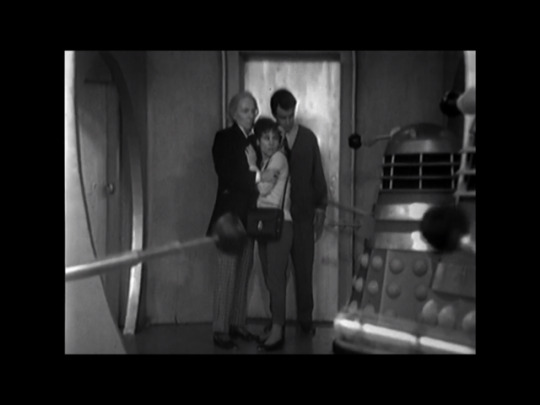
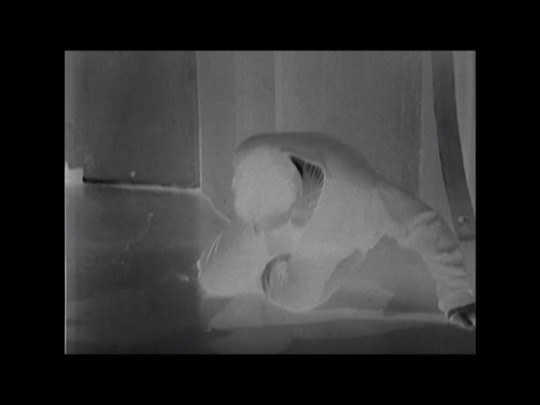
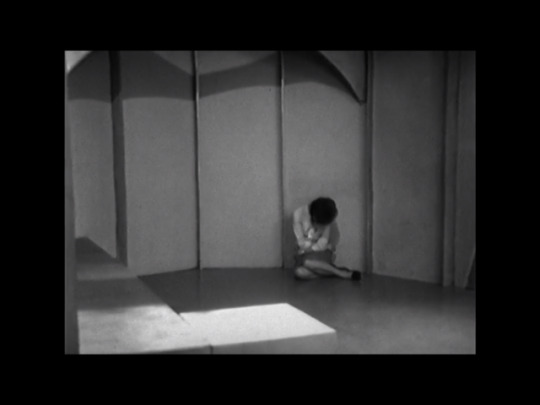
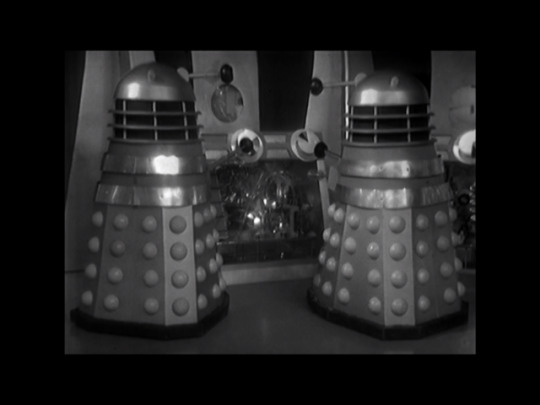
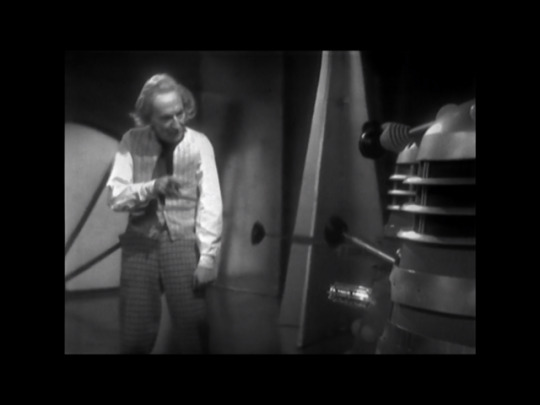
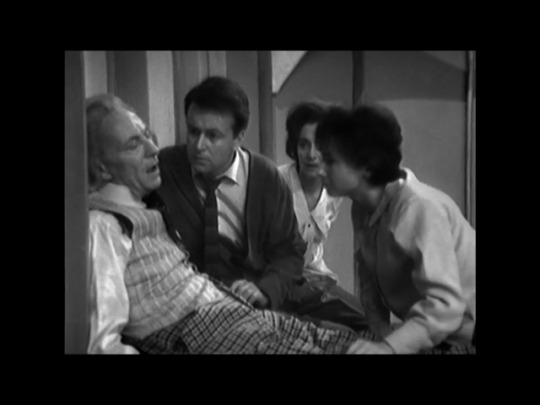
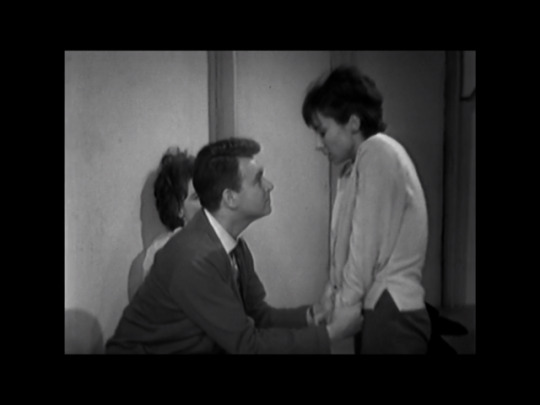
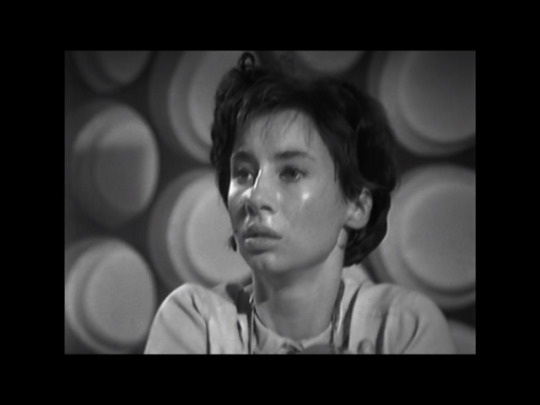
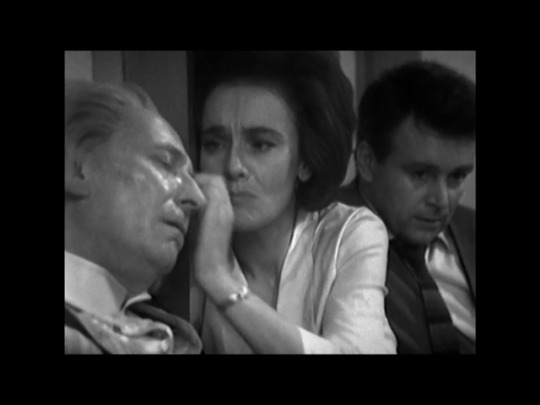
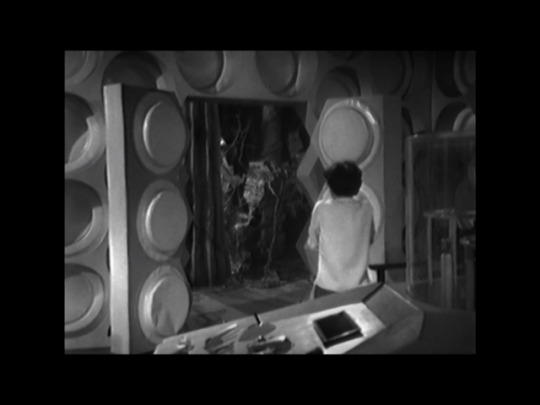
Intermittent Classic Who rewatch: S1E6 - The Daleks pt. 2, “Survivors”
“Ian, do you think they really are just machines?”
“What do you mean?”
“Well, I was going to say, do you think there's someone inside them?”
Top: the very first time viewers saw the Daleks, since the previous episode ended with the classic “heroine cowering from horrible monster [who happens to be audience POV]” cliffhanger.
Before and after the Daleks are visible, this episode keeps playing with the theme of life-threatening dangers one can’t see, a common menace in shows meant for a younger audience (Censors won’t let you show gruesome monster? Oh, well, FX aren’t half as scary as kids’ imaginations!)
The big Invisible Enemy bugaboo was radiation. It’s funny now seeing a 1960s Dalek Geiger Counter with “Danger” labeled in English (thanks, TARDIS), but it was no laughing matter. This was during the height of the Cold War, when the US, USSR and UK were detonating hundreds of nuclear tests, spreading fallout over large portions of the planet from Australia to the Arctic Circle, even outer space. The British public didn’t know every detail of these tests, but the Cuban Missile Crisis just one year before had very publicly brought the world to the brink of nuclear armageddon.
So while the Doctor is being a callous bastard deciding they need to flee to the ship without Barbara, his fears are understandable to the audience. And if he is scared, the viewers know to be scared. But of course the Daleks don’t let them run, and for the remaining scenes there’s the underlying dramatic tension that every second that ticks by is killing Our Heroes.
Also: pretty early in this episode, Ian is shot, the first time one of the regulars is seriously hurt. That was a scary moment. Theatrical as his delivery is (remember, early British TV was basically repertory theatre onscreen), I remember being shaken by his “My legs, I can’t move my legs!”
So much for the dashing action hero of early Who.
That scene of Barbara alone in the cell is brief but gets to the heart of what is really scary about traveling with the Doctor: the risk of being stranded, alone and beyond aid, on an alien world, with one’s fate in the hands of aliens. Unfortunately, she doesn’t get to do much but elicit audience sympathy, nurture, and plead for Susan’s sake (”She’s only a child!”I) in this story.
The First Doctor performs his usual morally grey first-season role: scientist, explorer, information gatherer and threat.
Just before they discover the Geiger counter and the Daleks discover them, the Doctor makes a mistake he would never make later. Puttering around in the abandoned lab:
DOCTOR: They're intelligent, anyway. Very intelligent.
IAN: Yes, but how do they use their intelligence? What form does it take?
DOCTOR: Oh, as if that matters. What these instruments tell us is that we're in the midst of a very, very advanced civilised society.
The Doctor’s first assumption is that the creators of this technology are like himself: intelligent, “civilised,” but his version of “civilised” is the kind that can kidnap inconvenient humans threatening to expose him, kill a cave man with a rock, or abandon Barbara to captivity to save his own skin. And yes, by those standards, the Daleks are civilised: Ayn Rand would think so, too.
He’s the brains, but not the hero: once he’s learned all he can from the Daleks, interrogating them as they interrogate him, he’s knocked out of commission. Just as in part 2 of Unearthly Child, the mysterious old man known as the Doctor has left them to their own devices. Ian, Barbara and Susan are forced to improvise without him, even though they know they can’t really escape without their pilot. But in a nice bit of drama, all the adults are incapacitated. Susan gets stuck with the hero ball.
When I was a snotty teen— the same one who didn’t properly appreciate Colin Baker— I was scornful of Susan, for her head-lolling, terrorstricken run through the forest. Come on, I thought, yes the woods can be a little scary at night, but it’s just a forest! (I guess the possibility of mutants didn’t make much of an impression on me).
But now I realise that she’s the surrogate POV character for Doctor Who’s main target audience: children. She shows what it means to bear up and do her duty despite being terrified. The parents of the kids watching Doctor Who would know that lesson very well, having lived through the Blitz and WWII. Susan shows children that it’s all right to be scared, that one can still Do The Thing. Screaming companions (not that she screams in this story) often serve that function.
Also, I now understand a little better the fear of a forest at night, since I can no longer step out my door and wander into the woods myself.
So this episode ends with her retrieving what she hopes are radiation gloves — er, drugs— from the TARDIS. Then she has to force herself away from its safety back to the forest.
And who knows when I will get to that. :P This is the rewatch that’s going to take another 40 years.
#rewatch#the daleks#Season 1#first doctor#barbara#ian#susan#yeah sorry too lazy to crop the black frame on Britbox
4 notes
·
View notes